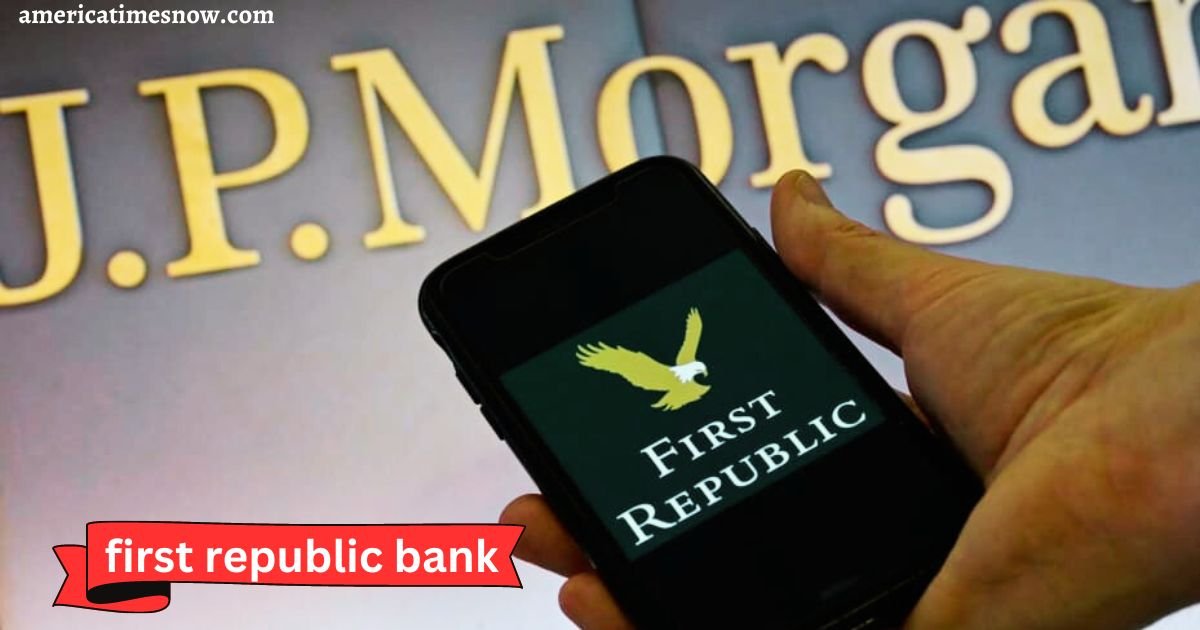First Republic Bank is seized by authorities
First Republic Bank is seized by authorities – JPMorgan Chase & Co. won the bidding to acquire First Republic Bank in an emergency government-led intervention after private rescue efforts failed to fill a hole on the troubled lender’s balance sheet and customers yanked their deposits.
JPMorgan will take over First Republic’s assets, including about $173 billion of loans and $30 billion of securities, as well as $92 billion in deposits. JPMorgan and the Federal Deposit Insurance Corp., which orchestrated the sale, agreed to share the burden of losses, as well as any recoveries, on the firm’s single-family and commercial loans, the agency said early Monday in a statement.
“Our government invited us and others to step up, and we did,” JPMorgan Chief Executive Officer Jamie Dimon said in a statement. “Our financial strength, capabilities and business model allowed us to develop a bid to execute the transaction in a way to minimize costs to the Deposit Insurance Fund.”First Republic Bank is seized by authorities First Republic Bank is seized by authorities
Why did First Republic Bank fail?
In march, silicon valley bank, once the envy of the nation’s tech elite with more than $200 billion in assets, went down the tubes in a flash—pretty much 36 hours from start (rumors of its insolvency) to finish (the announcement of a takeover by the Federal Deposit Insurance Corporation). It was the second-largest bank failure in American history.
Only the failure of Washington Mutual, which had more than $300 billion in assets when it went under in September 2008, was larger. Two days after the SVB disaster, the little-known Signature Bank, which had about $100 billion in assets, also failed. That was the third-largest bank failure in American history.
Investors, who had already been dumping shares, bolted. The firm’s shares – worth more than $120 apiece at the beginning of March – were trading for less than $4 on Friday.
Mr Dimon said the big banks’ deposit influx, which will now be repaid, had bought time and allowed regulators to close the firm without having to guarantee all deposits.
Shares in JP Morgan gained 2.6% following the deal, which will see it take on all $92bn deposits remaining at First Republic and “substantially all” of its assets, including $173bn of loans and about $30bn of securities.First Republic Bank is seized by authorities First Republic Bank is seized by authorities
‘Taxpayers will not bear costs’
A 2017 Government Accountability Office (GAO) report underscored the severity of the problem that NFIP “will not generate sufficient revenues to repay the billions of dollars borrowed from the Department of the Treasury… to cover claims from the 2005 and 2012 hurricanes or potential claims related to future catastrophic losses…
Since the program offers rates that do not fully reflect the risk of flooding, NFIP’s overall rate-setting structure was not designed to be actuarially sound in the aggregate, nor was it intended to generate sufficient funds to fully cover all losses.”
The report found that aspects of the Homeowners Flood Insurance Affordability Act of 2014 were “intended to address affordability concerns for certain property owners, but may also increase NFIP’s long-term financial burden on taxpayers.” The NFIP has been on the GAO’s high-risk list since 2006.
Authorization of the program, already $24.6 billion in debt and originally scheduled to expire on Sept. 30, has been extended until Dec. 8, as part of the budget deal that President Trump negotiated with Congress. But according to Rep. Tom MacArthur (R-N.J.), “It’s gonna run out of money probably in October.”First Republic Bank is seized by authorities
House Financial Services Committee Chairman Jeb Hensarling (R-Texas), whose committee has jurisdiction over the flood insurance program, visited Harvey victims in Houston and said, “Never again should we encourage people to continue living in harm’s way and put themselves and first responders at risk.
It is important that all Americans who have been affected by these natural disasters receive assistance, but we must enact real reform, responsible reforms so as not to cause long-term damage in the future.”
Hensarling noted that for one family he visited, it was the third time in the last eight years their home has flooded. He observed, “We cannot keep rebuilding homes in the same fashion and in the same places and expect different results.” His point is well taken.
American taxpayers are compassionate. However, it is unfair, if not immoral, to expect them to perpetually subsidize the rebuilding of homes in areas where catastrophes occur repeatedly.First Republic Bank is seized by authorities First Republic Bank is seized by authorities First Republic Bank is seized by authorities
The bank has been bought and sold several times over the years, with Merrill Lynch & Co. paying $1.8 billion to acquire First Republic in 2007. Ownership passed to Bank of America when it bought Merrill Lynch in 2009, and changed hands again in mid-2010, when investment firms including General Atlantic and Colony Capital purchased First Republic for $1.86 billion and then took it public.








